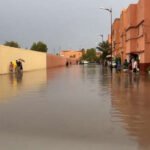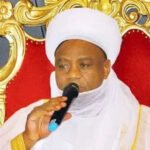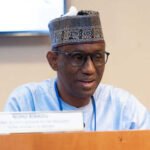Nigeria is one of West Africa’s most dangerous and difficult countries for journalists, according to the 2021 World Press Freedom Index report by Reporters Without Borders (RSF).
Africa’s most populous nation is ranked 120th out of 180 countries in RSF’s latest press freedom index. Nigeria ranked 115th in 2020.
Since 2019, according to the RSF report, three Nigerian journalists have been killed with complete impunity while covering street demonstrations.
In January 2021, Development Diaries reported concerns over the safety of investigative journalist and editor of Next Edition, Ibanga Isine.
The International Press Centre (IPC) raised the concerns after Isine, who had covered conflicts in southern Kaduna, northwest Nigeria, said he received threat messages over his reporting.
Gunmen, according to numerous media reports, killed over 200 people between January and June 2020 in communities in Kaura, Zangon Kataf, Kauru and Kajuru local government areas.
According to Isine, many of the sources linked to his investigations have reportedly died in controversial circumstances.
‘I have been investigating the southern Kaduna killings for months now, and I have just recently published the last part in a four-part series on the bloody attacks in the zone’, IPC quoted him as saying.
‘In the course of the investigation, two of my sources have been attacked, one was killed along with his son, three months after he said he was afraid for his life.
‘Another source escaped being killed and his neighbours paid dearly when the killers did not find him’.
IPC, in a statement, urged the Nigerian government and security agencies to ensure the safety of the journalist.
In March this year, precisely 19 March, the Governor of Kano State, Abdullahi Ganduje, said in an interview with the BBC’s Hausa-language service that he planned to ‘deal with’ journalists who produced a 2018 series of videos published by Daily Nigerian, which alleged that he had received bribes.
‘We are making plans. We will not disclose what sort of plans we are making’, the governor said, adding that the videos were fake. ‘The main issue is that we will deal with those who made it’.
Following Ganduje’s comments, the Daily Nigerian Publisher, Jaafar Jaafar, filed a petition to the Nigeria Police Force, alleging that Ganduje had indicated that he and his supporters were scheming underground to deal with him.
After the bribery reports were published in 2018, unidentified people approached Jaafar’s home and requested to see him according to the publisher.
Jaafar, according to the aforementioned petition, fled his home state of Kano in 2018 and ‘lives in perpetual fear in the rest of the country’.
‘With more than 100 independent newspapers, Africa’s most populous nation enjoys real media pluralism but covering stories involving politics, terrorism, financial embezzlement by the powerful or conflicts between communities is very problematic’, RSF noted.
In its reaction to the RSF report, the Civil Society Legislative Advocacy Centre (CISLAC) said, ‘The intimidation currently being faced by journalists and human rights activists by the state and other powerful individuals is unacceptable.
‘We would like to reiterate that the human rights and the freedom of journalists and human rights activists should be respected’.
In a statement issued by its Executive Director, Auwal Musa Rafsanjani, CISLAC also said, ‘We acknowledge the fact that journalists and civil society leaders have been instrumental to the development of Nigeria.
‘Their investigative reports have helped to unearth corruption amongst other ills in the society and have led in many cases to significant asset recoveries and prevention of grand-scale embezzlement when law enforcement has been unable or unwilling to do so’.
CISLAC called on the authorities in Nigeria to resist political pressure and operate within the spirit of the law.
Photo source: UN Climate Change




